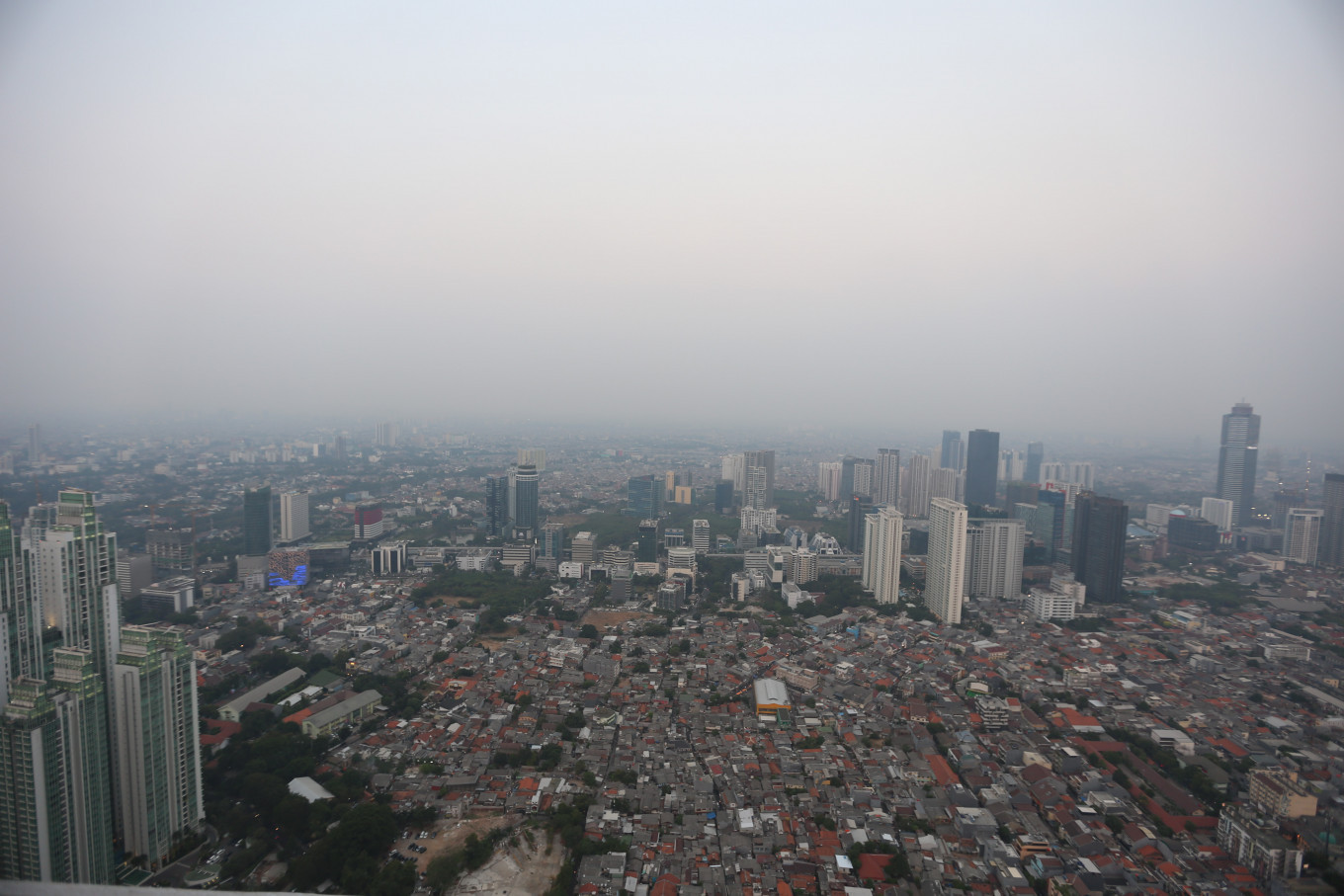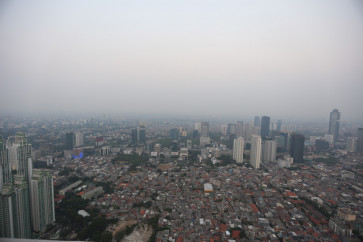Popular Reads
Top Results
Can't find what you're looking for?
View all search resultsPopular Reads
Top Results
Can't find what you're looking for?
View all search resultsPollution kills more than 230,000 Indonesians per year: Report
The Pollution and Health Metrics report, released in December by the Global Alliance on Health and Pollution, revealed that of the 232,974 recorded pollution-related deaths in Indonesia, 123,753 were attributed to air pollution and 60,040 to water pollution.
Change text size
Gift Premium Articles
to Anyone
 Smog blankets Jakarta’s skyscrapers on Monday, Aug.19, 2019.The Pollution and Health Metrics report, released in December by the Global Alliance on Health and Pollution, revealed that of the 232,974 recorded pollution-related deaths in Indonesia, 123,753 were attributed to air pollution and 60,040 to water pollution. (JP/Donny Fernando)
Smog blankets Jakarta’s skyscrapers on Monday, Aug.19, 2019.The Pollution and Health Metrics report, released in December by the Global Alliance on Health and Pollution, revealed that of the 232,974 recorded pollution-related deaths in Indonesia, 123,753 were attributed to air pollution and 60,040 to water pollution. (JP/Donny Fernando)
A
lmost a quarter of a million people in Indonesia die every year because of exposure to toxic air, water or soil or other forms of pollution, making it the country with the fourth-highest number of premature pollution-related deaths in the world.
The Pollution and Health Metrics report, released in December by the Global Alliance on Health and Pollution, revealed that of the 232,974 recorded pollution-related deaths in Indonesia, 123,753 were attributed to air pollution and 60,040 to water pollution.
Another 16,331 deaths were caused by occupational pollution, which encompassed occupational carcinogens, second-hand smoke, particulates, gases and fumes, and the remaining 32,850 were the result of lead pollution from exposure to emissions from leaded gasoline.
The headline figure places Indonesia far below India and China, both of which recorded more than 1.8 million deaths, and slightly lower than Nigeria. Countries ranked below Indonesia in the top 10 include Pakistan, Bangladesh and Ethiopia. In terms of the death rate, Indonesia ranked 75th in the world with 88 pollution-related deaths recorded per 100,000 people.
The report draws its data from the Institute for Health Metrics’ (IHME) 2017 Global Burden of Disease Study, noting that pollution remains the largest environmental cause of premature death by killing 8.3 million people, or nearly one death in seven globally, that year.
"Pollution kills three times as many people a year as HIV/AIDS, tuberculosis and malaria combined. Pollution is responsible for 15 times the number of deaths caused by war and other forms of violence each year," the report says.
Rising modern pollution, caused by industrialization and urbanization, is responsible for 5.3 million of the global pollution-related deaths a year, the report notes, adding that victims commonly come from low and middle-income countries due to largely neglected mitigation efforts there.

















